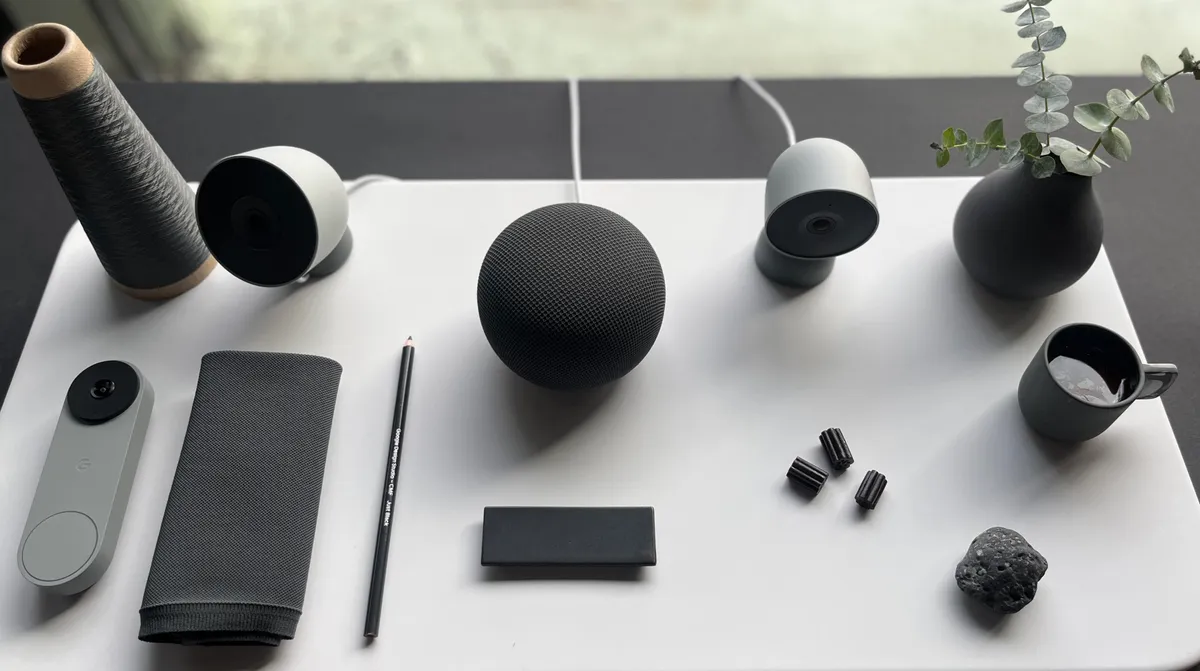Google is taking a bold step in reimagining the smart home experience with the integration of Gemini AI into its latest lineup of Nest devices. From cameras and doorbells to speakers, the tech giant is blending advanced artificial intelligence with everyday home products to create a smarter, more intuitive ecosystem.
📸 Smarter Nest Devices with 2K Video
Google has unveiled an upgraded range of Nest devices, including:
- Nest Cam Indoor (3rd Gen) – Priced at $100
- Nest Cam Outdoor (2nd Gen) – Priced at $150
- Nest Doorbell (3rd Gen) – Priced at $180
- Google Home Speaker – Set to launch in Spring 2026 for $99
The biggest hardware upgrade is in video quality. All three camera-based devices now support 2K resolution with HDR, delivering sharper visuals than the older 1080p models. Wider fields of view ensure maximum coverage: around 152° on Nest Cams and 166° diagonal on the Doorbell.
Enhanced low-light performance means the cameras can stay in full color longer at night, switching to infrared only when necessary.
⏱ Recording and Storage Options
By default, each device offers six hours of event history, storing clips triggered by detected movement or sound. For those who want deeper recording capabilities, Google has introduced tiered subscription plans:
- Google Home Basic ($10/month or $100/year)
• 30 days of event history
• Smart alerts like package detection
• Access to Gemini Live features - Google Home Advanced ($20/month or $200/year)
• 60 days of event history
• 10 days of continuous 24/7 video recording
• Premium AI-powered monitoring and alerts
This tiered model allows users to choose between essential security and advanced AI-driven monitoring.
🤖 Gemini for Home: AI at the Core
The biggest transformation isn’t just hardware — it’s the Gemini AI integration. Google is replacing the traditional Google Assistant with Gemini for Home, which acts as the “brain” of the smart ecosystem.
- Ask Home Interface: A natural language tool inside the Google Home app that lets users issue conversational commands. For example, you can ask, “What happened to the vase in the living room?” and Gemini will locate the relevant clip.
- Smart Briefs: Instead of endless alerts, the app can deliver a summarized timeline of activities, helping homeowners quickly catch up on what’s happened.
- New App Layout: The redesigned app now features three key tabs – Home, Activity, and Automations – making it easier to manage and customize your setup.
🏠 Future-Proofing Older Devices
Google isn’t leaving existing users behind. The company plans to roll out Gemini for Home to older Nest speakers and displays through software updates, some of which are nearly a decade old. Initially, this upgrade will be part of an opt-in program, ensuring smooth adoption across devices.
📢 A Delayed but Smarter Speaker
The new Google Home Speaker will ship in 2026. Google has delayed its release to focus on updating its older devices with Gemini AI first. This move suggests Google wants to make sure the AI experience is consistent across its ecosystem before introducing new flagship hardware.
⚔️ The Competitive Edge
With this revamp, Google is positioning itself as a leader in AI-driven smart homes, directly challenging Amazon’s Alexa ecosystem. While Amazon continues to push its Echo devices with upgraded features, Google’s emphasis on Gemini AI makes its ecosystem more context-aware, conversational, and future-ready.
✅ Key Takeaways
- Better Cameras: 2K HDR resolution, wide field of view, and improved night vision.
- Flexible Subscriptions: Options for casual users and security enthusiasts.
- AI Power: Gemini replaces Google Assistant with smarter, context-based responses.
- Future Ready: Even older devices will be upgraded to Gemini.
- Strategic Delay: The Home Speaker comes in 2026 to ensure AI-first consistency.
Final Word
Google’s latest revamp marks a turning point for smart homes. By embedding Gemini AI deeply into cameras, doorbells, and speakers, the company is creating a system that goes beyond voice commands — one that understands, summarizes, and anticipates user needs. With competition heating up, 2026 could be the year when smart homes truly become intelligent.
